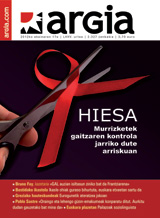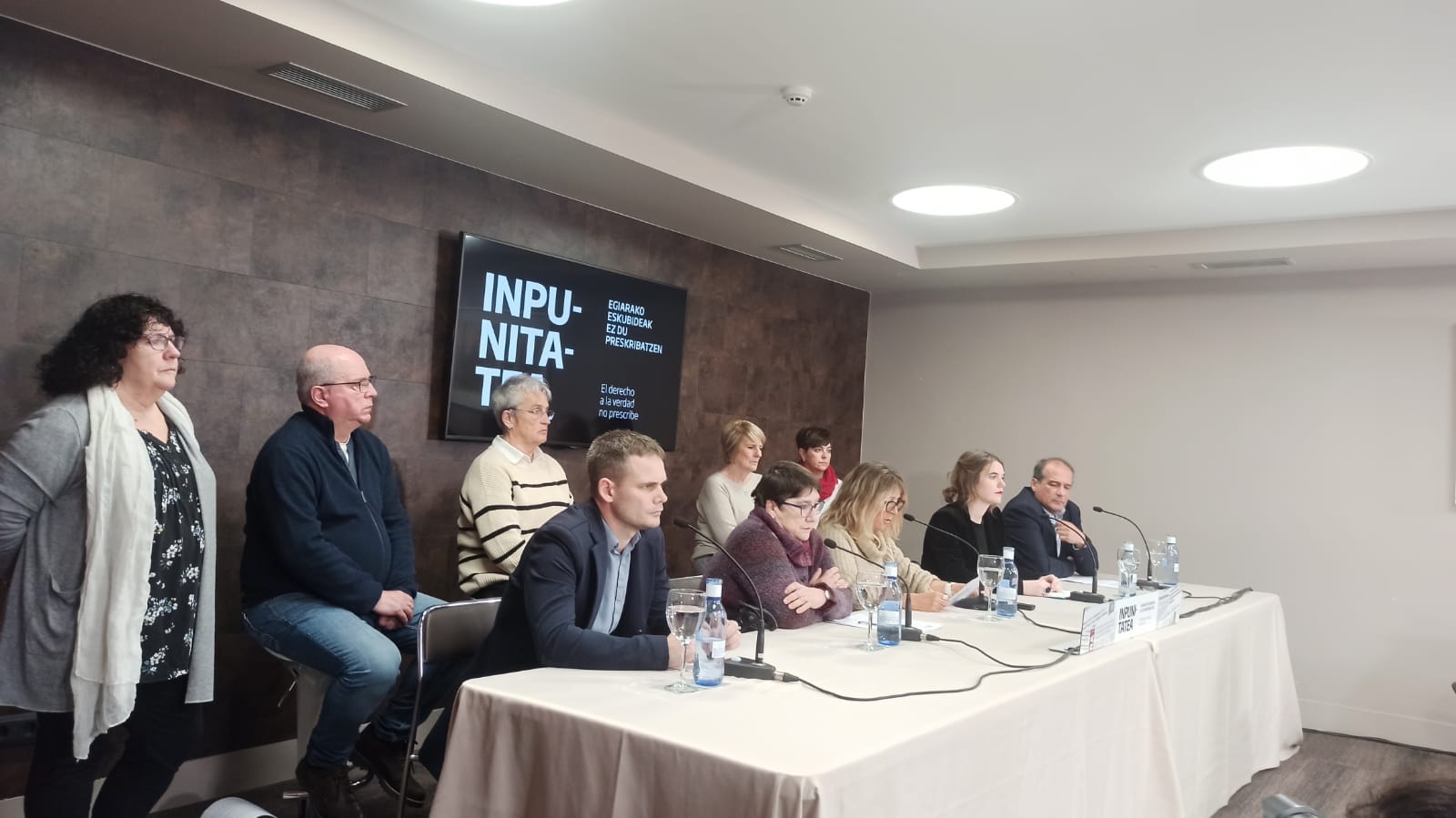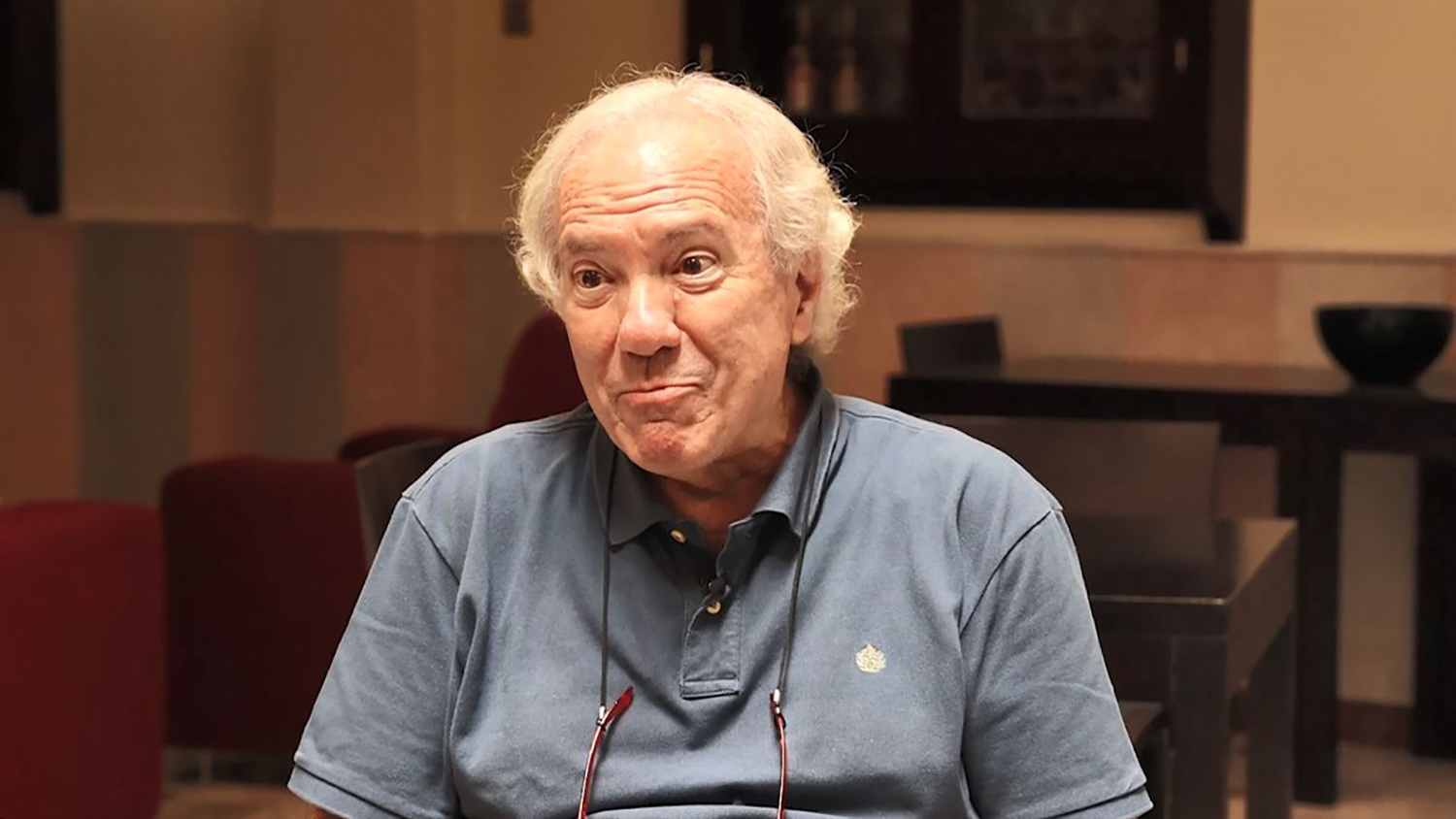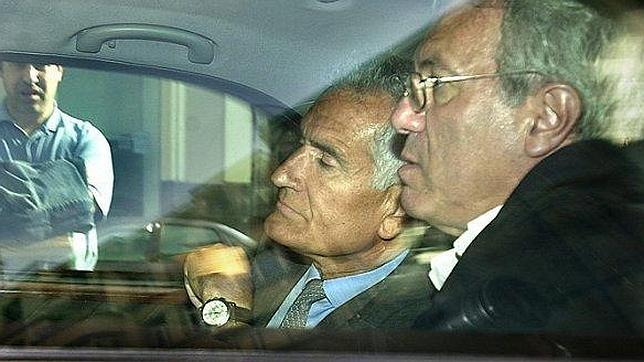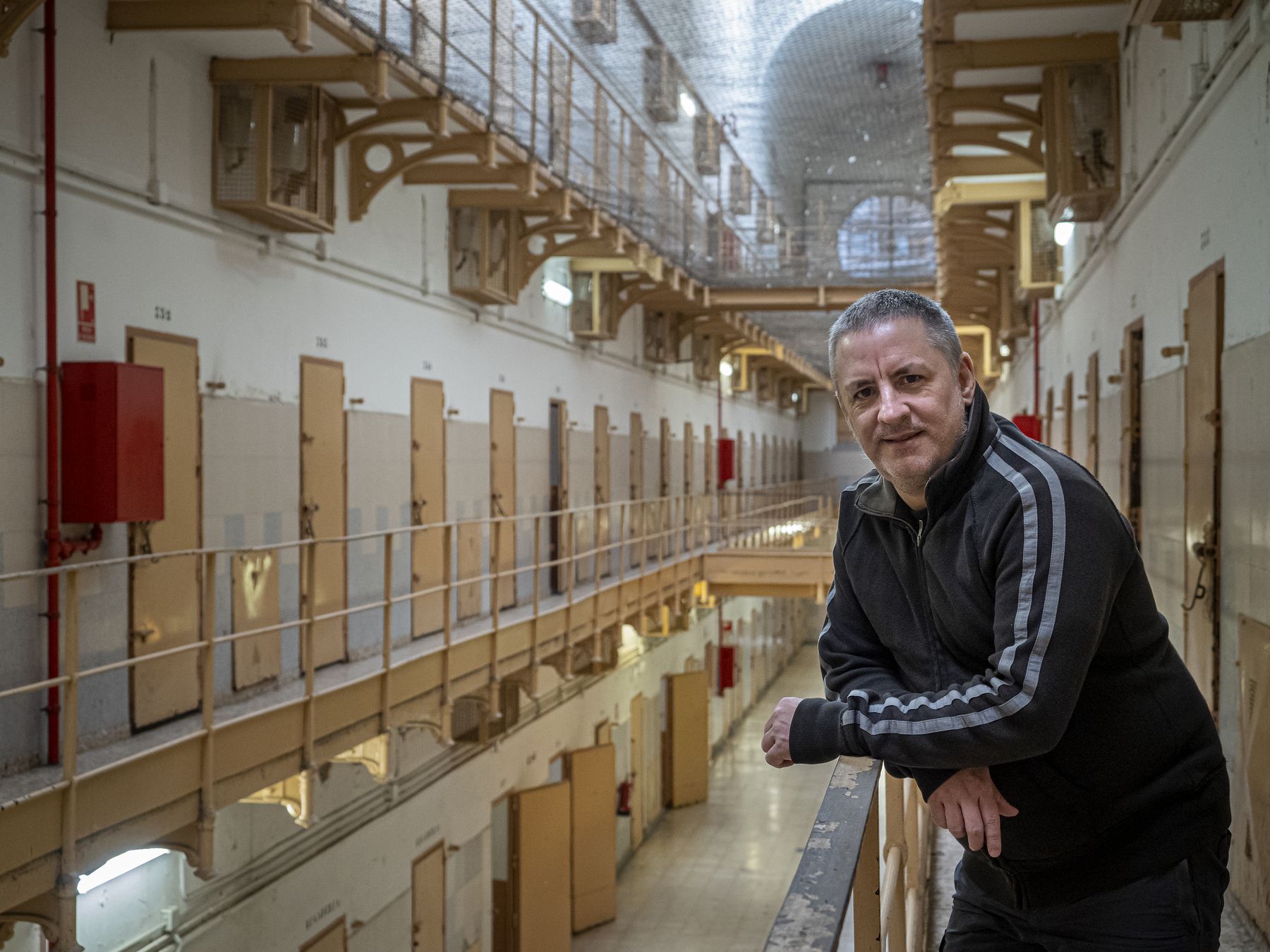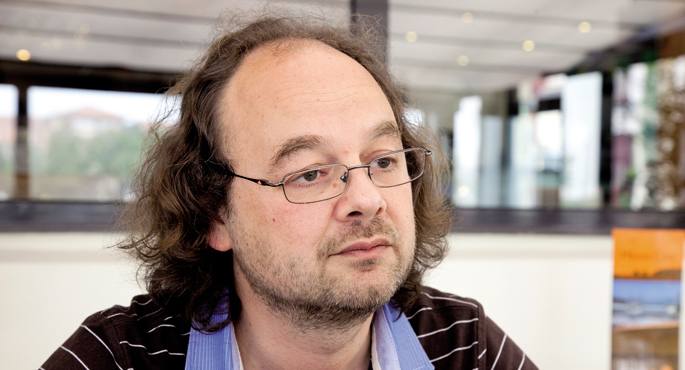
It has been 25 years since the LAGs, and it has hardly been written and investigated in France. Why so little interest?
The GAL is the bloodiest attack in the French State since the war in Algeria, and yet in France nobody talks about it, has left no trace of anyone inside it, ignorance is absolute. In the archives of the time, each attack has its chronicle, it was part of the main information of the night, but the issue was treated as a regular matter, as if it were a matter bleached between bands or corsicans. Nobody intended to understand the conflict here, to give continued and lasting treatment to the chain of attacks and to investigate what was happening. The key was for each attack to be presented as an isolated and ordinary case, preventing the wave sensation from spreading across the board. In Paris there was a strong political will not to mediate the Basque conflict, they did not want to import the conflict from the Basque Country into French lands, and they took advantage of the confusion and ignorance of journalists to stifle the echo of the shots. It was another time, a time when no minister, parliamentarian or mayor was moving through the centers of attacks, and the cameras were hand-in-hand with politicians ... The complexity of the matter and the political will came together, and everyone looked at the smoke instead of figuring out who was fueling the fire.
When they want, states react more quickly to the smell of burning.
Contrary to what people think, the GAL caused problems to Paris, it was the gravel they carried in the shoe. France did not like another state to use French land to pay off its debts, and although this tension has never been mediated, diplomatic relations between Paris and Madrid have been very thorny in the years of the LAGs. France continued to take over Spain and Spain responded by demanding greater involvement and cooperation against terrorism. But France was caught. On the one hand, I did not want to feel part of the Basque conflict, and on the other, I did not want to denounce and put the young Spanish democracy in a bad place at the door of the European Union. The neighbouring country is always an important economic and political member in these structures, and the States know better than anyone else than caring for friends than creating enemies.
Are these State reasons not an excuse? The methods of the LAGs had little democracy.
France is a cynical silence. In the name of preventing the collapse of the newly born Spanish democracy, it has left its hands free to Spain in diplomatic matters, although it is opposed to the battlefield. Paris is trying to combat the LAGs, arrests and prosecutes mercenaries, prevents some GAL attacks... No one wanted dead in French lands, no one wanted bodies of French nationality. However, the French investigations began and ended on the battlefield, apart from that they did not want to know anything, they did not want to continue pulling the strings and releasing the task until they reached the top leaders. They arrested the murderers, the mercenaries, but they knew that to keep pulling the strings was to leave Spain uncovered. What we have to understand is that the GAL was not born in order to force France to cooperate with Spain and to export the Basque conflict. Gonzalez came to power in a very special context. The coup d’état of Tejero had just occurred, both commissioners and barracks were furious at the nostalgia of the old days and most of the victims of ETA were police and military. The PSOE proclaimed aloud that it wanted real democracy, but the unionists did not want to know anything about it. Their eyes were logical, they did not believe that democracy could defeat ETA, and the threat of another coup was very close. In this context, the GAL was a measure taken from the point of view of Spain’s internal policy, which served to combat ETA, but above all to reassure barracks and commissioners. That was quickly understood by France, and, whether or not a virtuous decision, knew that publicly denouncing Spain could damage the democracy that was being implemented forever.
Is it not helping not to pull the thread to the last end?
The first signs of the LAGs research appeared in June 1984. They arrest several mercenaries and, at the home of one of them, collect information and documentation on Basque refugees. As a result, the first persecutions are channelled and, following the alleged French suspects, photographs of a quotation between mercenaries and authorities can be obtained in Dantxarenea. It is still unknown that one of the men in the photo is Amedo, but he realizes that the one he uses is a police car from the Bilbao police station. That's where the questions and the misgivings start. That same summer, Pierre Joxe, newly appointed minister of the French Interior, goes to Madrid and his bodyguard tells him that Felipe González’s bodyguard has recognized him “GAL, it’s us!”. Joxe is ruined by his hair and when he asks his friend González to account, he denies everything. They come back to reason of state, resort to scandal and jeopardize Spanish democracy, or take charge in private and continue to publicly represent the perfect marriage.
In 1986, however, Paris gave Madrid eight days to end the LAGs, and that was the end. Why? Then there was no reason for state?
In 1986, the right-wing Charles Pasqua came to the Ministry of the Interior. GAL, Islamists, Corsicans ... In France, a day goes by without attacks and the election campaign focuses on internal security, which is a recurring theme in France. As he takes office, Pasqua says that “we will terrorize the terrorists!” The fight against the LAGs was not a priority in itself, but as it entered the sack of terrorists it became a priority and as Pasqua had no personal or political relationship with the Spanish authorities, it did not care to create a diplomatic scandal. In addition, the Spanish context was not that of 1982, democracy had been strengthened, the barracks and police stations were more secluded, and as a result, Pasqua in an interview said that “it is unacceptable that another State should be able to bleach its accounts in our lands”. Madrid understands that things have changed, that the GAL can become a problem in its diplomatic relations, and after a private meeting in Paris, Madrid casts the checks by the bathroom and dismantles the GAL. In return, Pasqua expels 39 refugees and greatly accelerates anti-terrorist cooperation and involvement. It might be thought that the Spaniards got what they wanted, but Mitterrand’s chief of staff, Gilles-Ménage, says that if the GAL had not been there, cooperation between the two countries would have been strengthened much earlier.
What is the role of the French police in the LAGs?
On the one hand, there are brigades who have the mission of arresting GAL mercenaries, and on the other hand, they realize that the GAL mercenaries had the complicity of French police officers. The sheep had been lost inside the French police. Some of them were ideologically joining the GAL, who were even butterflies with the order to stay still, while the entrepreneurs of the South saw the liquidation of the revolutionary tax at the tip of their noses. The others sold the information for money. Charles Saenz, the gendarme in charge of the fight against ETA inside, says that he has found in the mercenary pockets of the GAL notes from his written reports. Was it Paris that ordered or authorized such cooperation? The only thing we have been able to demonstrate is individual complicity. In Hendaia, for example, there was more than one corrupt police officer who regularly sold pictures and information of refugees for the sole purpose of enriching himself. That is why I say that the GAL is complex, that not everything is black or white.
But what was France doing about those lost sheep?
French justice starts to work really at the end of the LAGs. As is normal, it takes time for business to materialize, the name of Amedo is not repeated and the serious signs appear in 1986-1987, when the GAL ends and Pasqua makes it clear that “if you finish the GAL, we will adapt ourselves so that the processes do not go too far to anyone.” Thus, France is not going to make a great effort to attribute responsibilities and to blame political prisoners. Imagine that a good group of judges do their job very well, release knots, but every time they come to ask permission to move forward they find no more than obstacles and brakes. The scandal has erupted in Spain thanks to the work of the Jews Riberolles and Seyts, who are the ones who have caught Amedo in the trap and who, on discharge, attribute the shameful attitude of the French justice administration. They had great difficulty in investigating them, reduced resources as the investigation progressed and, as explained by the police chief, Charles Saenz, despite reports that repeatedly revealed all the murderer's data and evidence against him, nothing moved. France did not want problems. I did not want to force the Spanish leaders or the French policemen sold to sit in the dock of the defendants. They did their best to preserve the appearance of ordinary business: to arrest the mercenaries, to judge them and then to close their eyes. That is why I say that it is not a complicity between France and Spain, but a form of cynicism.
Shouldn't journalism be investigated what justice didn't investigate?
I like to research, show what you can't see, forget the window and search the trash. The guy who comments a football match also does journalism, but it's not the same trade. My thing is research, and in that sense, GAL is a fascinating subject. It is the great scandal of Spanish democracy, the Minister of the Interior and the police chiefs have been tried and condemned, and although all the attacks take place in the French State, there is absolute ignorance in France. We know Madrid’s role in the LAGs, Mr X’s role is not a mystery, the involvement of the police and the civil guard is unquestionable, but on the role of France nobody says anything, nobody knows anything. There is a cracked field there, and the research premise is the gap. Why do you think that we have managed to reach the famous mercenary Francis who escaped the claws of the police? Because it's been 25 years, because prescriptions are above, because there are people who need to talk, and because they talk to journalists more easily than with the police. Don't think the police haven't tried enough, or that journalists are better than the police. No, I can assure you that Francis was saved because he is as discreet as a crazy guy, but at the same time we have been given time, and even though journalism cannot do justice, he has an obligation to reveal the truth.
On the contrary, is current journalism not drowned in obligations that have little to do with telling the truth?
Rather than political pressures, we are drowned by trade pressures. One media outlet has to sell advertising, so two-page research is much more profitable than six. But of course, on two pages you're just going to dig deeper into nothing, and the salary also depends. If research is dying, it's because it's not economically profitable, or it's the same thing, because the media wants to invest in other, more profitable areas. On the other hand, the relationship with time has changed enormously, and this frenetic acceleration of time has condemned the hierarchization of information. It commands immediacy, one piece of news hunting the other, and journalism has become a news race that doesn't analyze or delve into anything. We have spent 18 months with the GAL investigation, but we have charged for delivering the documentary for 52 minutes, not for 18 months of research. If we had worked on a report on the campsite in Hendaia for two weeks, we would have paid the same, and that is a real pressure and threat to investigative journalism. But for me, that's the essence of journalism, I don't know who, to tell it on twitter. So I believe that the main challenge of today's journalism is to find a balance between traditional journalism that explains, investigates and reflects events and immediate current journalism.
Euskal Herrian bizi den freelance kazetari hau Maisons Lafitte-n sortu zen 1971ko azaroaren 14an. Historian eta kazetaritzan lizentziatua, prentsa idatzirako (Science et vie, L'Express, Le Parisien, Sud-Ouest...) zein telebistarako (Arte, Canal+) egiten du lan. No Low Cost eta Complocratie liburuak idatzi ditu, eta oraintsu emititu berri den GAL: des tueurs d’Etat dokumentalaren egilea da Xavier Muntzekin batera.
Oraindik inputatuta ez dagoen pare bat auzitan Amedo inputatzeko moduko frogak eta testigantzak, orain arte inork inoiz aurkitu ez duen Francis ezizeneko mertzenarioaren lekukotasun zitala, Felipe Gonzálezek GAL parlamentu aurrean asumitu zezakeela onartzen duen Rafael Veraren hausnarketa... Hori eta gehiago dakar GAL: des tueurs d’Etat dokumentalak. Alabaina, Parisen lehen bezalaxe egiten du euria, Madrilen inork ez du karkaxarik bota, eta Euskal Herrian... Horixe, egon hadi lo eta jango dunk mehe.
GALeko biktima talde batek eman du kereilaren nondik norakoen berri Bilbon egindako prentsaurrekoan, Egiari Zor fundazioak eta Giza Eskubideen Euskal Herriko Behatokiak lagunduta. GALen aurkako eta, zehazki, José Barrionuevoren aurkako kereila aurkeztuko dute.
Felipe Gonzálezen garaian Espainiako Barne ministroa zen José Barrionuevoren aurkako kereila aurkeztuko dute, Ipar Euskal Herriko errefuxiatuen aurka abiatu zuen estrategiagatik. ZEN Zona Especial Norte Planaren barruan egindako ekintzen erantzule nagusietako bat... [+]
Javier Chicote eta Juan Fernández-Miranda kazetariek El jefe de los espías (Espioien burua) liburua argitaratu berri dute. ABC espainiar egunkariko kazetariak dira biak, lehena ikerketa taldekoa eta bigarrena ABCko zuzendariaren albokoa. Hamalau urtez Espainiako... [+]









